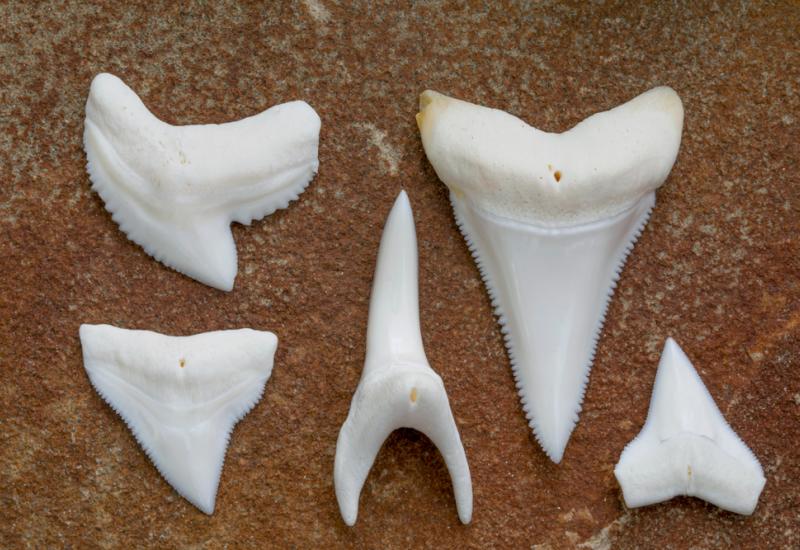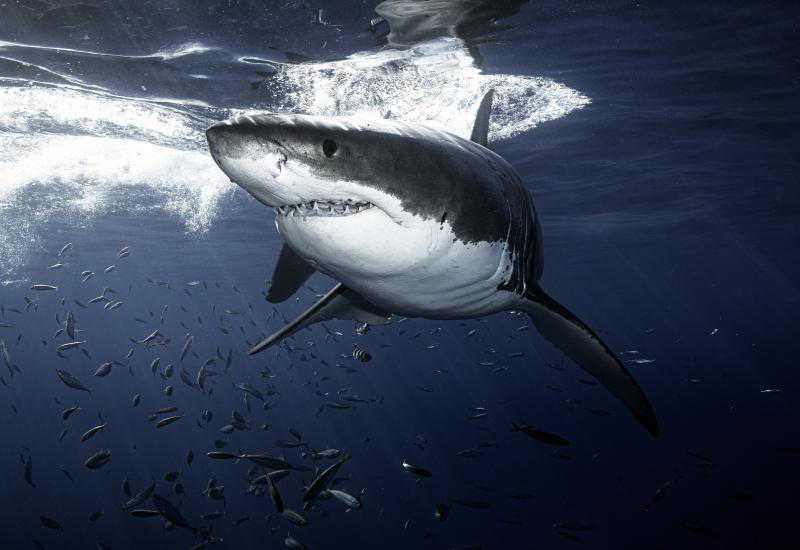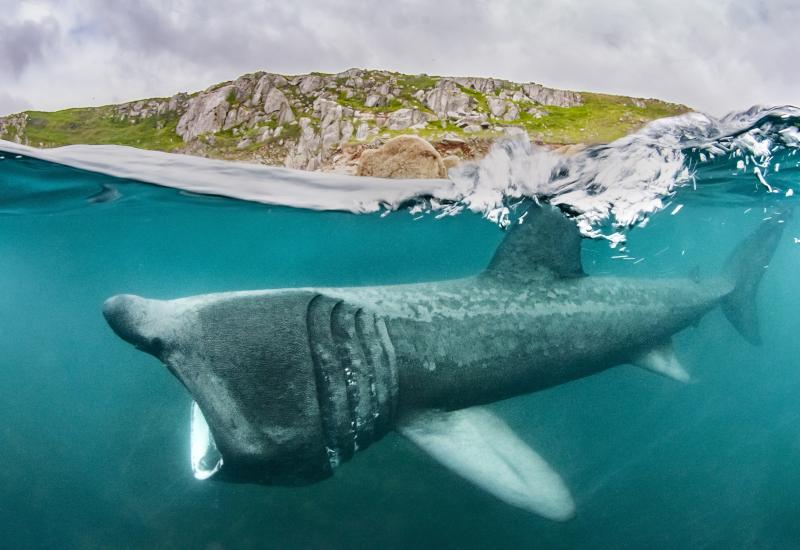How Technology Is Making Shark News More Ridiculous
Shark-o-philes love to complain about fearmongering nonsense in media coverage of our favorite sea creatures. “Sharks don’t infest waters, they live there,” reads a popular meme from last year that pillories some of this language. While this kind of scary news coverage isn’t as big a conservation threat to sharks as some people seem to believe, it certainly does these animals, many of which are threatened with extinction, no favors. And while this idea is old news, lately there’s an entirely new genre of ridiculous fearmongering media coverage on the scene.
Take this story from last year, for example, “Shark approaches oblivious swimmers at Florida beaches,” which typifies the genre:
The story and accompanying video show a shark swimming in the ocean near some humans who are swimming in the ocean. The shark is just minding its own damn business, and poses no threat to the humans, who don’t even realize that it’s there and probably had a pleasant visit to the beach. Millions of people have this same interaction every year. It’s not new, it’s not noteworthy, and it’s not anything you need to worry about.
But stories like this play into a goofy narrative that’s been creeping into media coverage of sharks: the idea that sharks are newly moving into shallow waters frequented by humans for mysterious and nefarious purposes. Perhaps the worst example of this was Shark Week’s 2016 special Shallow Water Invasion, but you can see it all the time these days.
Friends, sharks are not newly moving into shallow waters—they’ve always been there. And another way of saying “really close to the beach” is “in the water, where fish are supposed to be”—if you saw a shark walking down Main Street, that would be noteworthy, but seeing a fish in the ocean shouldn’t really surprise anyone.
So if sharks have always been there, why are there so many more news stories about this lately? The answer is simple, and it has nothing to do with sharks. These days, everyone has a video camera with them all the time—usually a smartphone, sometimes a GoPro or drone. This means that it’s easier than ever before to document incredibly common and not at all new or noteworthy shark behavior. However, a video of sharks swimming near the beach is more likely to make the six o’clock news than an interview with some dude claiming that he saw a shark swimming near the beach!
So there you have it. No matter what you see in a goofy new genre of fearmongering news coverage, sharks visiting shallow water is nothing new. As is usually the case, the difference is us.
About Dr. David Shiffman
Dr. David Shiffman is a marine conservation biologist specializing in the ecology and conservation of sharks. An award-winning public science educator, David has spoken to thousands of people around the world about marine biology and conservation and has bylines with the Washington Post, Scientific American, New Scientist, Gizmodo and more. Follow him on Twitter, Facebook and Instagram, where he’s always happy to answer any questions about sharks.
About Science Stop with Dr. David Shiffman
Before you surface from a deep scuba dive, you make a safety stop. Before you take a deep dive into the complicated world of ocean conservation, I encourage you to make a science stop by reading this column. The global environmental challenges we face can seem overwhelming, and concerned citizens, especially people like scuba divers who love spending time in the ocean, want to help do their part to fix these problems.

Josh LibermanDr. David Shiffman
However, with lots of conflicting, misleading or just plain wrong information out there about environmental problems and how you can help solve them, it can be hard to know how to help. In some cases, well-intentioned but misinformed activists not only fail to help solve a problem, but can actually make the problem worse, or harder to solve! Put simply, if we’re going to fix the massive problems facing the ocean, the details matter, and those details can be confusing! In this monthly column, my goal is to teach you the true scientific facts behind some of the most pressing threats facing the ocean and the solutions experts believe will help solve them. I will also try to dispel common misconceptions about these threats and their solutions.
The views expressed in this article are those of David Shiffman, and not necessarily the views of Sport Diver or Scuba Diving magazines.










